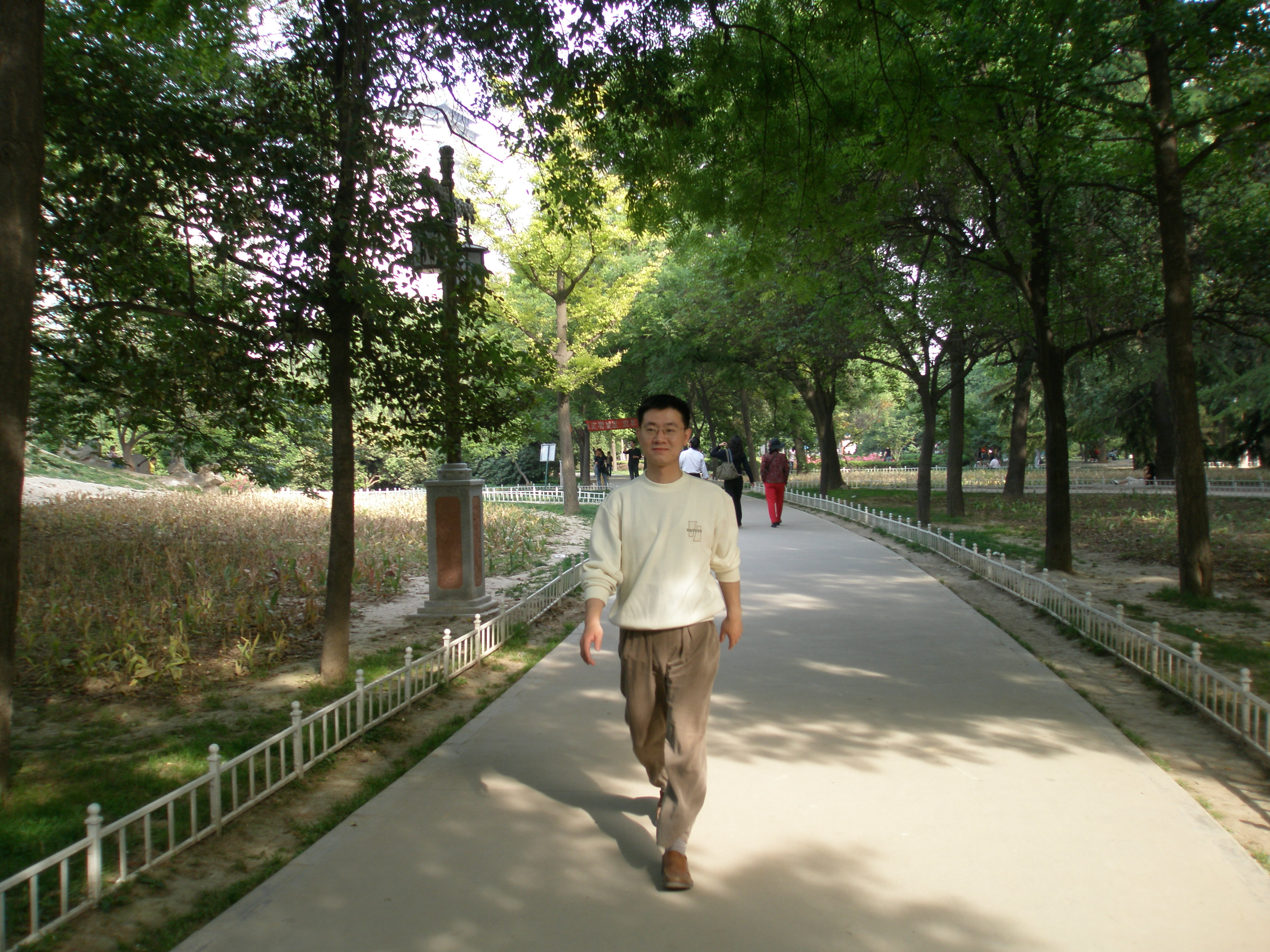
At Xi’an Xingqing Park
|
Basic Information Jin zhong entered Xi’an Jiaotong University in 1989.He studied Abroad in Contacts Tel: (+86) 029-82668687 Major Publications: “Yufudsukuyo Woguranoyamani” A Study of Kinotsurayuki’s uta(poem) ―Focused on the Analysis of its Frist Phrase― JAPANESE STUDIES: RESEARCH AND EDUCATION ANNUAL REPORT 5(2001) The dusk image in the uta(poem) Yukutoshino Woshikumoarukana(grieving the passage of time at the year’s end) ―A Study of Kinotsurayuki’s uta― JAPANESE STUDIES: RESEARCH AND EDUCATION ANNUAL REPORT 7(2003) The Consciousness of Time in Tsugomori-uta―Focused on Hachidai-Shu― JAPANESE STUDIES: RESEARCH AND EDUCATION ANNUAL REPORT 9(2005) “Ju mu jian ri,bu jian Chang’an” as a Source of Later Expressions―A Chinese Literary Background for the 959th Song in Shin-Kokinshu― CHUGOKU SHIBUN RONSO Studies in Chinese Classical Literature No.25 (2006) Examining the supplemental uta found in the Kiryo Volume of the Shin-Kokinshu―from the perspective of “Sorrow on a Journey at Evening Twilight”― JAPANESE STUDIES: RESEARCH AND EDUCATION ANNUAL REPORT 11(2007) Evening and Transitoriness―Difference of their Images in Japanese and Chinese Poetry― CHUGOKU SHIBUN RONSO Studies in Chinese Classical Literature No.26(2007) Poems on “Waiting for Love” at Dusk―Focusing on the Contrast with Chinese Keien Shi― PROSEEDINGS OF THE 31th INTERNATIONAL CONFERENCE ON JAPANESE LITERATURE(2008) Abstract of Ph.D Thesis Poetics of “evening twilight” in Japanese classical waka poetry: A study in comparative literature based on the Hachidaishū Jin Zhong “Evening twilight” is a universal theme found among literary works around the world. In Japan, this theme has been evoked since the Man’yōshū, and since the Middle Ages “evening twilight in Autumn” has come to be established as part of the aesthetic sense of the Japanese. In this dissertation, the use of “evening twilight” is examined in the poems found in the so-called Hachidaishū (eight waka anthologies collected by Japanese Imperial command, namely the Kokinshū, Gosenshū, Shūishū, Go-Shūishū, Kinyōshū, Shikashū, Sensaishū and Shin-Kokinshū), which are known to be typical examples of classical waka poetry. The poems are also compared and contrasted with those in the Man’yōshū. It was found that the content of most “evening twilight” poems were centred around five themes: scenic sketch poems which describe “evening twilight” as part of nature, travel poems which sing of the melancholy gathering around the traveller at twilight, love poems which deal with the urges of love abounding at twilight and love encounters at twilight, season’s end poems that lament the passing of a season as emotions gather at twilight, and poems on the decay and wane of life which associate twilight with ageing and death. This dissertation examines each of the above themes in detail, utilising the perspective of Sino-Japanese comparative literature studies. Chapter One examines the twilight travel poems and links them to the problem of supplemental poems found in the Kiryo volume of Shin-Kokinshū. Chapter Two looks at twilight love poems according to each of their themes. In Chapter Three, twilight season’s end poems are examined as part of the inquiry by season’s end poems into temporal consciousness. Chapter Four looks at the genesis and range of expressions presented by twilight poems on the decay and wane of life. Chapter Five examines twilight scenic sketch poems as part of an inquiry into the origins of the lonely pathos embodied in the theme of “evening twilight in Autumn”. Poems about “evening twilight in Autumn” have been found in poems dating from Go-Shūishū, and these strikingly embody a sense of lonely pathos. However, when one examines historical changes in “evening twilight poems”, one discovers that while the lonely pathos of “evening twilight” was not really evoked in Man’yōshū, in Hachidaishū “evening twilight” began to be seen as something that drew out a sense of lonely pathos in and of itself. This change is due to the introduction and acceptance of Chinese poetry and Buddhist writings. We conclude that the origins of the lonely pathos embodied in the theme of “evening twilight in Autumn” can be dated back to the Sandaishū (namely Kokinshū, Gosenshū and Shūishū) in the period after the Man’yōshū and up to the period of the Go-Shūishū. Lastly, compared to Chinese literature, the feelings of pathos and transiency are much more acutely felt in “evening twilight poems”. This is a reflection of the special qualities of waka literature. |

 (创新港)
(创新港)


